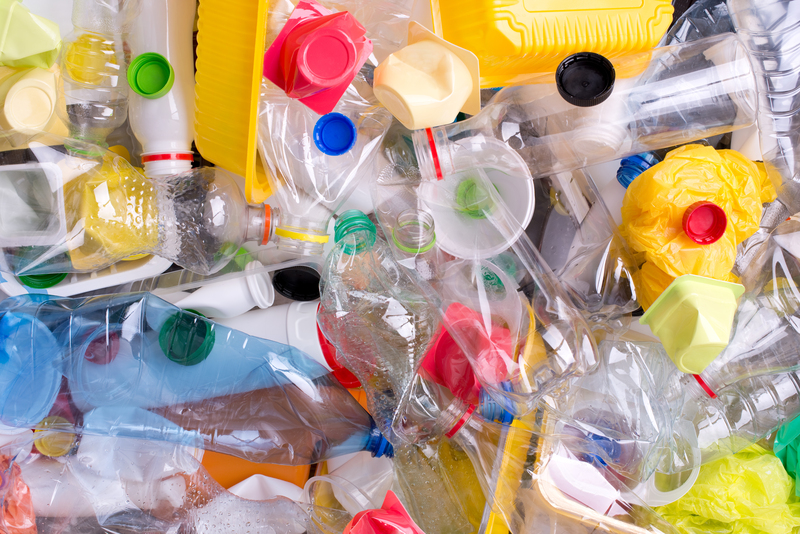London's Commitment: No More Waste
Posted on 13/11/2024
London's Commitment: No More Waste
The Drive Towards Sustainability
London, a bustling metropolis with a population of nearly nine million, has recently taken a stand against waste. The city's commitment to reducing and ultimately eliminating waste reflects a broader global trend towards sustainability. This ambitious plan is designed to create a more sustainable environment for future generations by significantly cutting down on waste production and enhancing recycling efforts.

Zero Waste Goals
The ambitious "No More Waste" strategy aims to transition London to a zero-waste city by 2030. This means that by the end of the decade, London is projected to reduce landfill waste to nearly zero. The city's authorities are focusing on several key areas to achieve this goal, including reducing single-use plastics, enhancing recycling programs, and encouraging a circular economy where products are reused and repurposed rather than discarded.
Innovative Solutions and Policies
To meet these zero-waste goals, London is implementing various innovative solutions and policies. For example, the introduction of more comprehensive waste segregation systems in homes and businesses ensures that waste materials are properly sorted and recycled. Additionally, the deployment of technology such as smart bins, which provide data on waste production patterns, aids in better waste management and strategy planning.
Another critical policy is the implementation of Extended Producer Responsibility (EPR) schemes, which ensure manufacturers take responsibility for the entire lifecycle of their products. This makes businesses more accountable and encourages them to create products that are easier to recycle or repurpose.
Community Involvement and Education
One of the linchpins in London's waste reduction strategy is community involvement. The city recognizes that for the "No More Waste" plan to be successful, citizens must be actively engaged and educated about waste reduction practices. The government, in collaboration with local organizations, conducts awareness campaigns and workshops on topics such as composting, recycling, and minimizing single-use items.
The Role of Technology and Innovation
Technology plays a crucial role in achieving a zero-waste future. London's commitment involves investing in tech solutions like waste tracking apps and smart recycling systems, which help in monitoring waste production in real time. These technologies facilitate better waste sorting, improve recycling rates, and provide valuable data that can be used to refine waste management strategies.
Challenges and Roadblocks
Despite the promising initiatives, there are challenges and roadblocks on the path to becoming a zero-waste city. These include dealing with legacy waste management systems that are not equipped to handle modern recycling needs, addressing the high costs associated with upgrading infrastructure, and fostering behavioral change among the population resistant to altering long-standing habits.
Pros and Cons of Zero Waste Initiatives
Pros:
- **Environmental Impact**: Significant reduction in pollution and conservation of natural resources.
- **Economic Benefits**: Creation of green jobs and opportunities in the recycling sector.
- **Health Benefits**: Reduced landfill and incineration can lead to better air quality and public health.
- **Community Engagement**: Enhanced community cohesion and public awareness of environmental issues.
Cons:
- **High Initial Costs**: Upfront investment required to set up new waste management systems and technologies.
- **Behavioral Resistance**: Difficulty in changing public attitude towards waste and recycling.
- **Operational Challenges**: Managing the transition from old waste systems to new, more sustainable ones.
Tips for Reducing Waste at Home
1. **Compost Organic Waste**: Set up a compost bin for food scraps and garden waste.
2. **Recycle Properly**: Follow local guidelines to ensure your recyclables are sorted correctly.
3. **Reduce Single-Use Items**: Opt for reusable bags, bottles, and containers.
4. **Buy in Bulk**: Reduce packaging waste by purchasing items in bulk.
5. **Donate and Repurpose**: Instead of throwing away, donate items you no longer need or find creative ways to repurpose them.

Key Takeaways
- London's zero waste strategy is ambitiously aiming for no landfill waste by 2030.
- Innovative policies, technology, and community involvement are key components.
- There are several pros including environmental, economic, and health benefits.
- Challenges include high initial costs and resistance to behavioral change.
- Practical tips can help individuals contribute to the zero waste initiative.
Conclusion
London's "No More Waste" commitment is a comprehensive and forward-thinking approach to tackling the city's waste problem. While the road to a zero-waste future is fraught with challenges, the combined efforts of government, businesses, and residents present a promising path forward. By embracing sustainability, leveraging technology, and fostering community engagement, London is not only aiming to transform its own waste management practices but also setting a benchmark for other global cities to follow.

 020 3875 4096
020 3875 4096 020 3875 4096
020 3875 4096




 House clearance
House clearance Rubbish collection
Rubbish collection London Rubbish Clearance is one of the most popular companies for
London Rubbish Clearance is one of the most popular companies for  Our company in London is all you need for professional rubbish collection! London Rubbish Clearance has lots of experience when it...
Our company in London is all you need for professional rubbish collection! London Rubbish Clearance has lots of experience when it...




